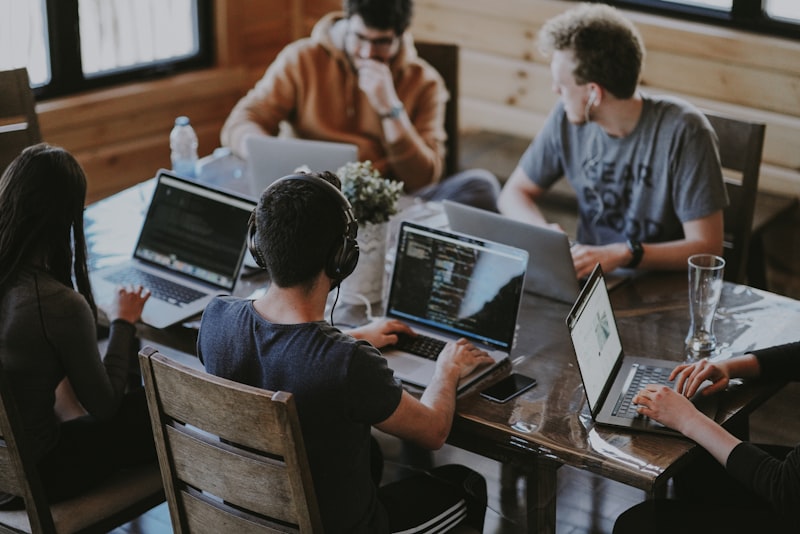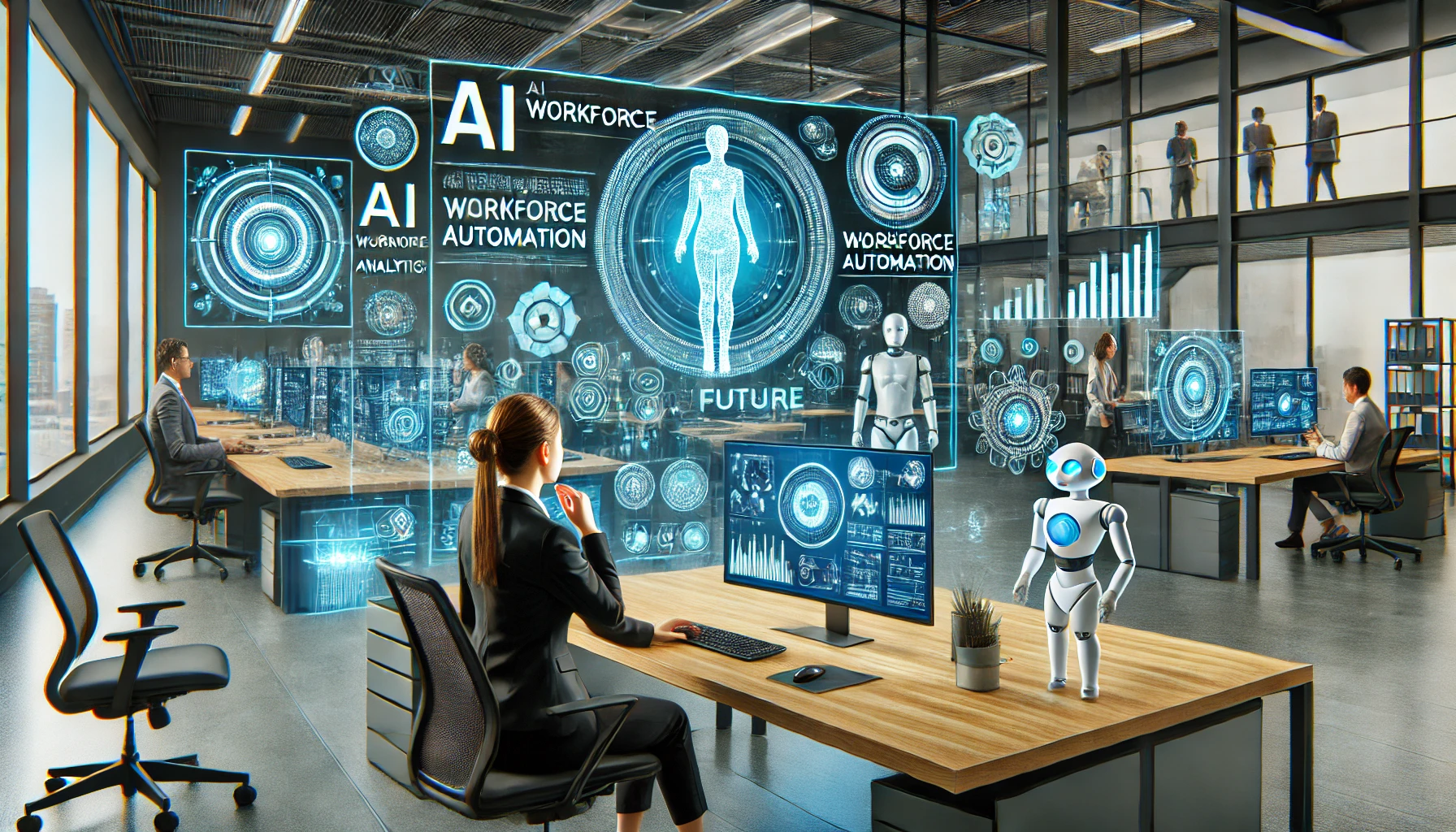Artificial Intelligence (AI) is transforming industries at an unprecedented pace, redefining how humans work, collaborate, and adapt to a rapidly evolving job market. From automating repetitive tasks to augmenting human creativity, AI is not just replacing jobs—it’s creating new opportunities for innovation and efficiency. In this article, we will explore the profound impact of AI on the workforce and what the future holds for human-AI collaboration.
1. The Evolution of Work: How AI is Changing the Job Landscape
AI is reshaping the workforce by:
- Automating routine tasks: Freeing up time for strategic decision-making.
- Enhancing human capabilities: Allowing professionals to focus on creativity, problem-solving, and leadership.
- Creating new career paths: As industries integrate AI-driven tools into their operations.
Rather than replacing human workers, AI is acting as a powerful assistant, enabling professionals to make better decisions, optimize workflows, and improve productivity.

Image by ThisisEngineering RAEng on Unsplash
2. AI-Powered Automation: Transforming Efficiency Across Industries
A. AI in Manufacturing and Robotics
AI-driven robots, such as those used by Boston Dynamics and Fanuc AI Robotics, automate assembly lines, increasing precision and production speed while reducing human error. Predictive maintenance powered by AI helps prevent machinery breakdowns, saving companies millions in repair costs.
B. AI in Finance and Business Operations
AI-powered chatbots handle customer inquiries, while machine learning algorithms detect fraudulent transactions in real-time. JPMorgan Chase COIN AI reviews legal documents in seconds, automating work that previously took lawyers thousands of hours.
C. AI in Healthcare and Medical Research
AI-enhanced diagnostic tools, such as Google DeepMind’s AlphaFold, revolutionize protein structure prediction, accelerating drug discovery and personalized medicine. AI-powered robotic surgery systems assist doctors in complex procedures, improving precision and patient outcomes.

Image by Martin Sanchez on Unsplash
3. The Human-AI Partnership: Augmenting Human Creativity and Intelligence
A. AI in Creative Industries
Far from replacing artists and writers, AI is enhancing creative work. Tools like Adobe Firefly AI assist designers in generating visuals, while OpenAI’s ChatGPT helps writers brainstorm ideas and refine content. AI-powered music composition tools allow musicians to create new sounds never heard before.
B. AI in Decision-Making and Leadership
AI-driven data analytics platforms provide executives with deep insights, enabling faster and more accurate decision-making. AI-powered predictive analytics help businesses anticipate market trends, optimize pricing strategies, and improve customer engagement.
C. AI in Education and Workforce Training
AI-powered virtual tutors personalize learning experiences, helping professionals upskill and reskill for AI-driven careers. Platforms like Coursera AI Learning Paths recommend courses based on career goals, ensuring workers stay competitive in the evolving job market.

Image by Priscilla Du Preez on Unsplash
4. The Ethical and Societal Impact of AI on Employment
A. AI and Job Displacement: Will AI Replace Humans?
While AI automates repetitive tasks, it also creates new job opportunities in fields such as AI ethics, cybersecurity, and AI system maintenance. Governments and organizations must invest in workforce reskilling programs to prepare employees for AI-driven careers.
B. Bias and Fairness in AI-Powered Hiring
AI-driven recruitment platforms must be carefully monitored to prevent algorithmic bias in hiring. Tools like Pymetrics AI use neuroscience-based assessments to ensure fair and unbiased talent selection.
C. AI in the Gig Economy and Remote Work
AI-powered platforms, such as Upwork AI Talent Matching, optimize freelancer-client connections. AI-enhanced virtual collaboration tools improve productivity in remote work environments, making global teamwork more seamless than ever.

Image by Firmbee.com on Unsplash
5. The Future of Work: What’s Next for AI in the Workplace?
- AI-powered digital coworkers: Seamlessly collaborating with humans on projects.
- AI-driven workplace well-being tools: Monitoring stress levels and promoting mental health.
- Hyper-personalized AI career coaching: Offering customized professional development.
Conclusion: The Age of Human-AI Collaboration is Here
AI is not just a tool—it’s a transformative force reshaping the way we work, innovate, and create. The future of work is not about AI replacing humans but about humans and AI working together to unlock new possibilities. Organizations that embrace AI-powered collaboration will lead the next wave of economic and technological growth.
The future of work is here—how will you prepare for it?
References
- Boston Dynamics. “AI in Robotics: Transforming Manufacturing.” 2025.
- JPMorgan Chase. “COIN AI: Automating Legal Document Review.” 2024.
- Google DeepMind. “AlphaFold: Revolutionizing Protein Structure Prediction.” 2025.
- Coursera. “AI Learning Paths: Upskilling for the Future.” 2025.
- Pymetrics. “Neuroscience-Based AI Hiring Tools.” 2024.

